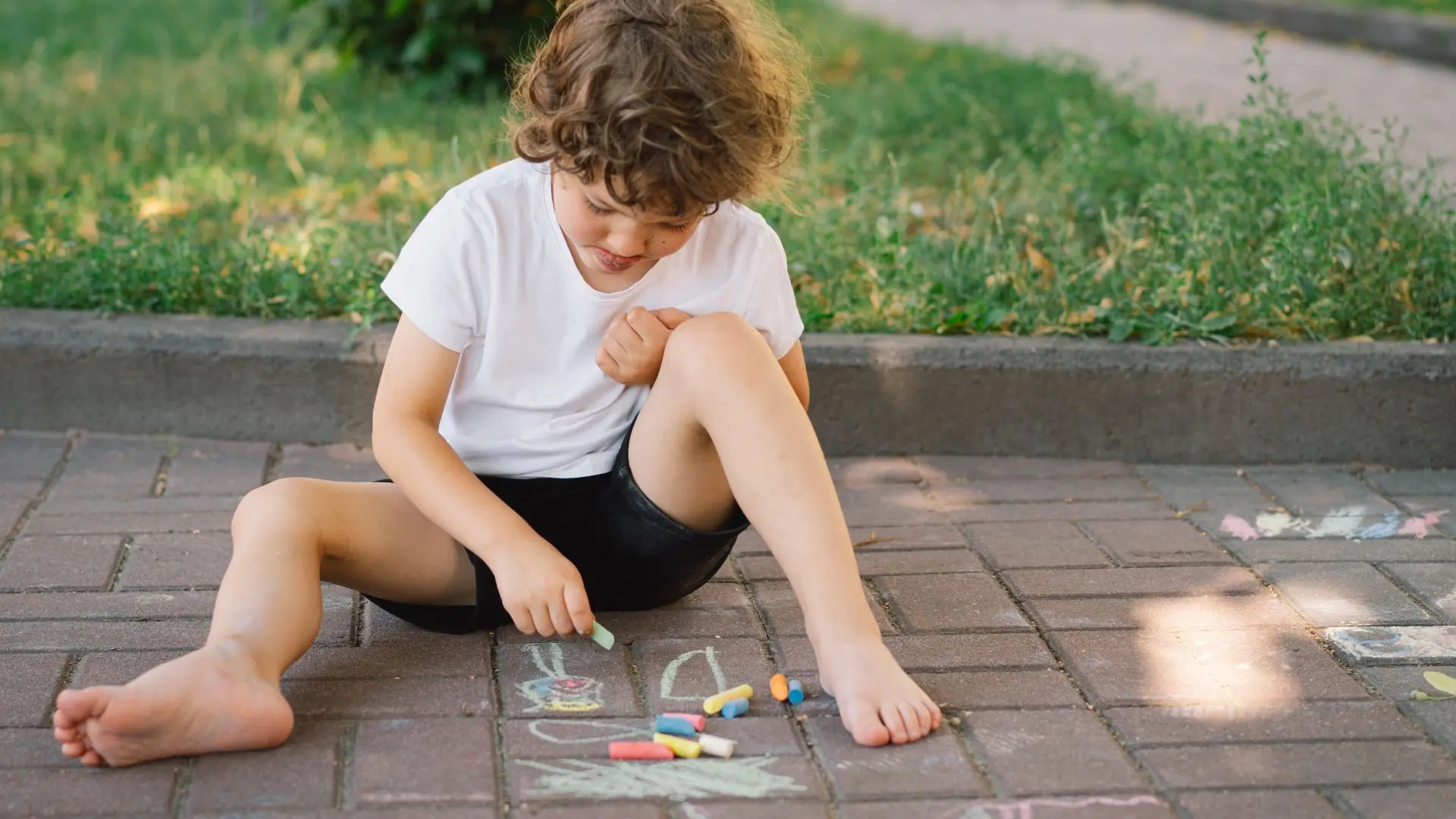Raise confident problem-solvers with these 20 effective parenting hacks. Learn how to nurture curiosity and resilience in your child’s daily life.

In today’s fast-paced world, developing critical skills is more important than ever, especially when it comes to parenting. According to a 2023 study by the Pew Research Center, 77% of parents in the United States worry about their children’s ability to succeed in an increasingly complex world. To address these concerns, incorporating effective parenting hacks into daily routines can make a significant difference in raising children who are not only curious but also adept at solving problems.
This blog will explore 20 powerful parenting hacks designed to help your children develop into confident, resourceful problem-solvers. These strategies are grounded in real-life examples and tailored to resonate with the values and experiences of families.
20 Powerful Parenting Hacks Designed to Raise Resourceful Problem-Solvers
1. Create an Idea Spot for Creative Exploration
Encouraging creativity starts with giving your child a place to store their ideas. Designating an “idea wall” or a special notebook can help children organize their thoughts and feel valued. This simple yet effective parenting hack allows your child to revisit and refine their ideas, teaching them the importance of planning and follow-through.
For example, if your child expresses interest in starting a lemonade stand, have them jot down their ideas in the designated spot. Later, you can revisit these ideas together and discuss the necessary steps to bring them to life. This process not only nurtures creativity but also teaches patience and the value of preparation.
2. Ask Specific Questions to Guide Problem-Solving
One of the most effective parenting hacks is learning how to ask the right questions. When your child is stuck on a problem, asking them, “What’s the tricky part for you?” can help them identify the specific obstacle they’re facing. This approach empowers children to analyze their difficulties and begin solving them independently.
For instance, if your child is struggling with a math problem, instead of immediately offering a solution, ask them what part of the problem is confusing. This not only helps them think critically but also boosts their confidence as they work through the challenge.
3. Break Down Tasks into Manageable Steps
Children often feel overwhelmed when faced with large tasks. One of the most practical parenting hacks is teaching them how to break down tasks into smaller, more manageable steps. This method helps children see that even the most daunting challenges can be tackled one step at a time.

For example, if your child needs to clean their room, help them break the task down into smaller steps: picking up toys, putting clothes in the hamper, and making the bed. This approach makes the task seem less overwhelming and teaches your child valuable organizational skills.
4. Use Visual Cues to Enhance Understanding
Visual aids are powerful tools in helping children grasp complex concepts. By incorporating pictures or diagrams into their learning process, you can make tasks more understandable and achievable. This parenting hack is particularly effective for younger children who might struggle with verbal instructions alone.
For example, if your child is learning how to tie their shoes, create a step-by-step visual guide that they can refer to. This not only makes the learning process easier but also encourages independence as they can follow the guide on their own.
5. Encourage Mistakes as Learning Opportunities
One of the most important parenting hacks is to create an environment where mistakes are viewed as valuable learning opportunities. Allowing your child to make mistakes and guiding them through the process of correcting them fosters resilience and problem-solving skills.
For instance, if your child is baking cookies and forgets to add sugar, resist the urge to fix the mistake for them. Instead, use it as an opportunity to discuss what went wrong and how it can be corrected in the future. This approach helps children understand that mistakes are a natural part of learning and growth.
6. Promote Pausing and Reflecting
In moments of stress or frustration, taking a pause can be incredibly beneficial. Teaching your child to take a moment to breathe and think before reacting is one of the most valuable parenting hacks for emotional regulation.
For example, if your child becomes upset during a challenging homework assignment, encourage them to step away for a few minutes. This break allows them to return to the task with a clearer mind, ready to approach the problem with renewed focus and energy.
7. Collaborate as a Family Team
Working together as a family to solve problems is a powerful way to teach children the value of collaboration and shared effort. As the family leader, your role is to guide the process while encouraging your children to contribute their ideas and solutions.

For instance, if your family is planning a garden, involve your children in the decision-making process. Ask them how they think the garden should be laid out, what plants they want to grow, and how they can help with the planting. This collaborative approach not only builds teamwork skills but also makes your children feel valued and invested in the outcome.
8. Innovate with Existing Resources
Teaching children to think creatively with what they already have is one of the most resourceful parenting hacks. Challenge your children to come up with new ways to use their toys or household items, which fosters creativity and problem-solving skills.
For example, if your children are bored with their current toys, encourage them to combine different toys to create new games. This not only revitalizes their interest but also teaches them to look at things from different perspectives.
9. Celebrate Effort and Small Wins
Recognizing and celebrating your child’s efforts, even in small successes, is key to building their confidence and perseverance. This parenting hack emphasizes the importance of the process rather than just the outcome.
For example, if your child has been working hard on a school project, take the time to acknowledge their effort, regardless of the final grade. Celebrating their dedication reinforces the value of hard work and encourages them to keep trying, even when challenges arise.
10. Discuss Problem-Solving Strategies
Engaging your child in discussions about different problem-solving strategies is an effective way to broaden their thinking. This parenting hack helps children understand that there are often multiple ways to approach and solve a problem.
For instance, if your child is having trouble with a school assignment, sit down with them and brainstorm different ways to tackle the problem. Discussing various strategies not only helps them find a solution but also teaches them that flexibility and creativity are important in problem-solving.
11. Promote Question-Asking to Stimulate Curiosity
Encouraging your child to ask questions is fundamental to fostering curiosity. By validating their inquiries and guiding them toward discovering answers, you’re nurturing a lifelong love of learning. This is one of the most impactful parenting hacks for developing an inquisitive mind.
For example, if your child asks why the sky is blue, instead of simply providing the answer, encourage them to explore the topic together. This could involve looking up information online, reading a book, or conducting a simple experiment. The goal is to make question-asking a natural and rewarding part of their daily life.
12. Model Curiosity and Lifelong Learning
Children learn by example, so demonstrating your own curiosity is one of the most effective parenting hacks for encouraging your child to be curious. Show interest in new topics, pursue hobbies, and engage in learning activities alongside your child.

For example, if you’re interested in cooking, involve your child in the process of trying out new recipes. Discuss why certain ingredients are used and explore different cuisines together. This not only teaches them about the subject but also shows that learning is a lifelong journey.
13. Create Exploration Opportunities
Providing opportunities for your child to explore and experiment is crucial for fostering curiosity and problem-solving skills. This parenting hack involves setting up environments where your child can safely test ideas and learn from their experiences.
For example, set up a small science lab at home where your child can conduct simple experiments. This could include growing plants, mixing colors, or building structures. These hands-on activities allow children to explore concepts and discover solutions through trial and error.
14. Encourage Storytelling and Imaginative Play
Storytelling and imaginative play are powerful tools for developing creativity and problem-solving skills. By encouraging your child to create stories or role-play scenarios, you’re helping them explore different perspectives and solutions.
For instance, ask your child to invent a story about a character who faces a challenge and must find a way to overcome it. This exercise not only stimulates their imagination but also helps them practice thinking through problems and considering various outcomes.
15. Introduce “What If” Scenarios to Expand Thinking
Introducing “What If” scenarios is a fun and engaging way to challenge your child’s thinking. This parenting hack encourages creative problem-solving by asking your child to imagine different situations and their potential outcomes.
For example, ask your child, “What if animals could talk? How would our lives be different?” or “What if you had to solve a problem without using any tools? What would you do?” These hypothetical questions stimulate critical thinking and help your child develop the ability to think outside the box.
16. Set Up Challenges to Build Resilience
Offering your child challenges that require effort and perseverance is a great way to build resilience. This parenting hack involves providing tasks that are difficult but achievable, helping your child learn the value of hard work and persistence.
For example, give your child a puzzle that’s slightly above their current skill level. Encourage them to keep trying and offer support as needed. Completing the challenge will give them a sense of accomplishment and reinforce the importance of persistence.
17. Provide Choices to Develop Decision-Making Skills
Allowing your child to make decisions is essential for developing their problem-solving abilities. This parenting hack involves giving your child choices in everyday situations, which teaches them to evaluate options and consider the consequences of their decisions.

For instance, when planning a family outing, let your child choose between two activities. Discuss the pros and cons of each option and allow them to make the final decision. This practice not only helps your child learn to weigh choices but also instills a sense of responsibility for the outcomes of their decisions.
18. Use Real-Life Problems as Teaching Moments
Incorporating real-life problems into your child’s learning experience is an excellent way to teach practical problem-solving skills. This parenting hack involves engaging your child in everyday challenges, such as budgeting for groceries or planning a trip.
For example, involve your child in creating a grocery list with a budget in mind. Discuss the cost of different items and help them understand the importance of prioritizing essentials. This real-world application of problem-solving skills teaches them valuable lessons about managing resources and making informed decisions.
19. Reflect on Outcomes to Improve Problem-Solving Skills
After your child has completed a task or solved a problem, take time to reflect on the process and outcome. This parenting hack involves discussing what worked well, what didn’t, and how things could be improved next time.
For instance, if your child successfully completes a school project, sit down with them to talk about the steps they took. Ask them what challenges they faced and how they overcame them. This reflection helps reinforce the learning process and encourages your child to think critically about their actions.
20. Introduce Mindfulness to Enhance Focus and Problem-Solving
Teaching your child mindfulness techniques can significantly improve their focus and problem-solving abilities. This parenting hack involves introducing simple mindfulness practices, such as deep breathing or meditation, to help your child manage stress and approach challenges with a clear mind.
For example, before starting homework or a challenging task, guide your child through a few minutes of deep breathing. This practice helps calm their mind and prepares them to focus on the task at hand. Over time, mindfulness can become a valuable tool in your child’s problem-solving toolkit.
Conclusion
Raising a child in today’s fast-paced world is no easy task, but with the right strategies, you can guide your child toward becoming a confident, resourceful individual. By implementing these parenting hacks, you are not just teaching your child to solve problems—you are instilling in them a lifelong love of learning and exploration.
I encourage you to share your insights and personal experiences in the comments below. How have these parenting hacks worked for you? What other strategies have you found effective in nurturing curiosity and problem-solving skills in your children? Let’s continue this conversation and learn from each other.
You may also be interested in : Why Preschooler Age is the Most Critical and the Hub of Traumas